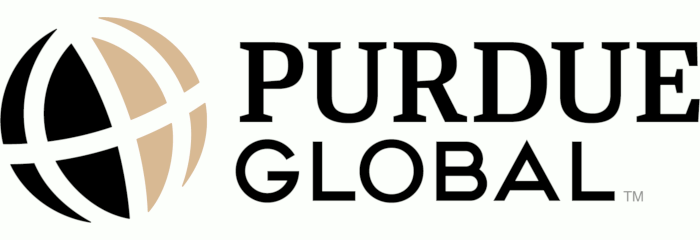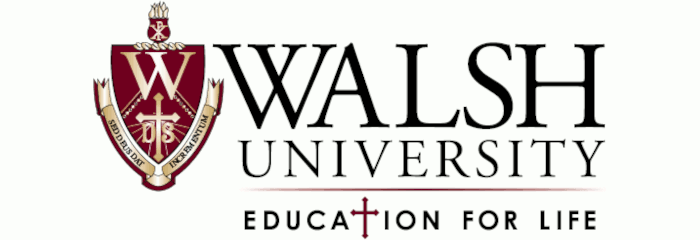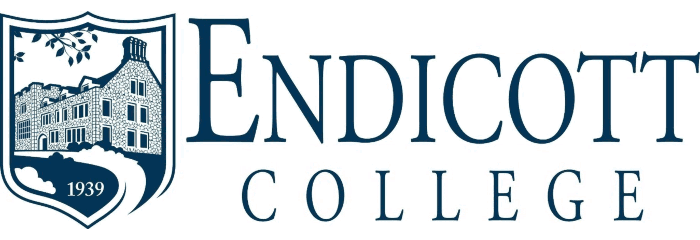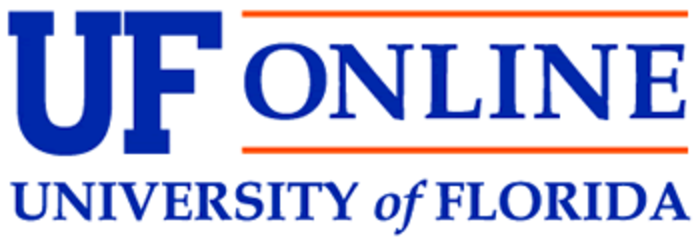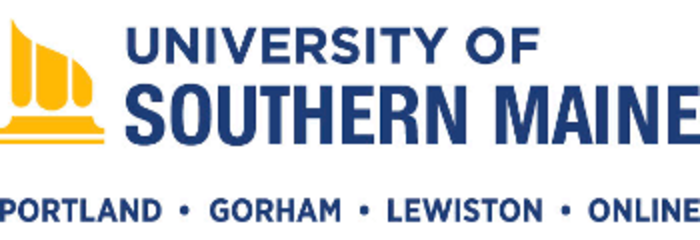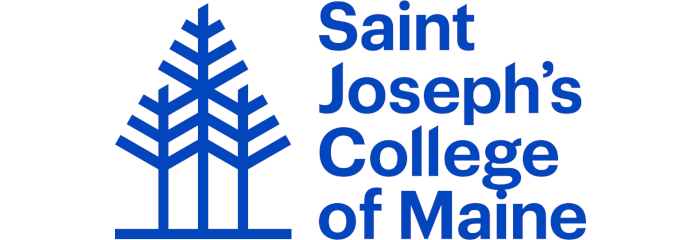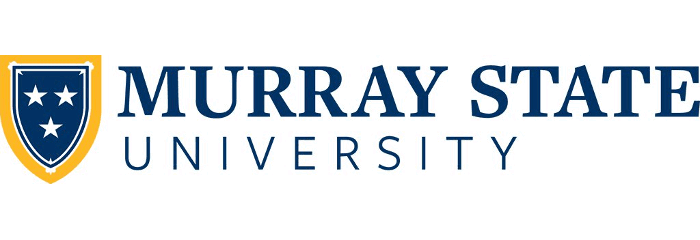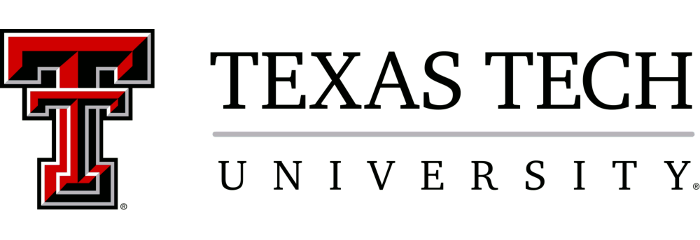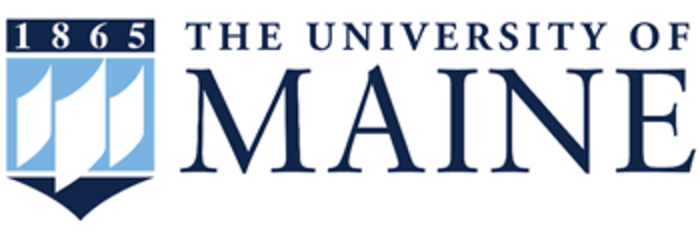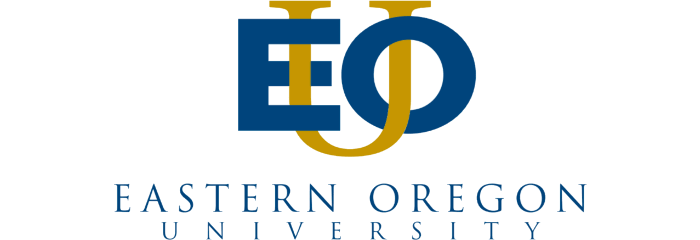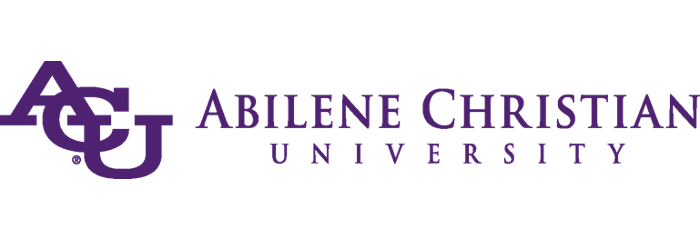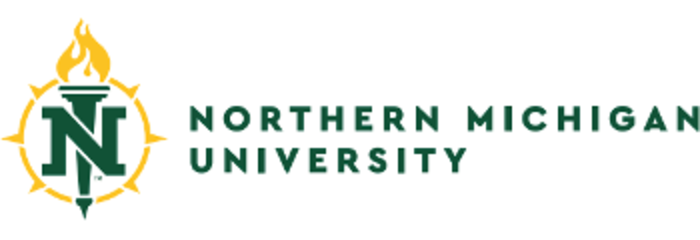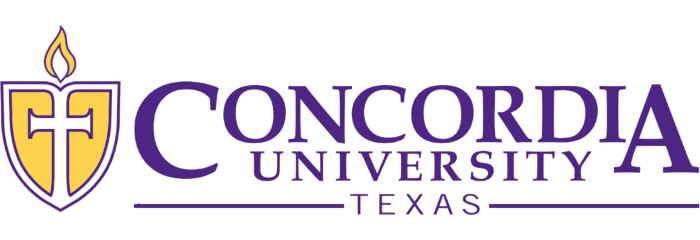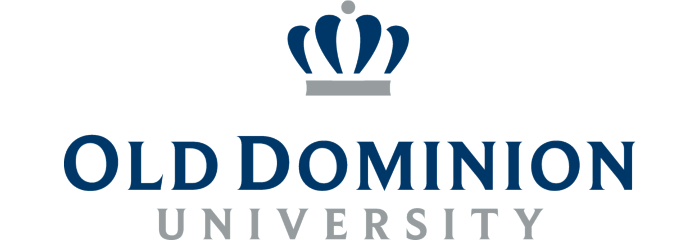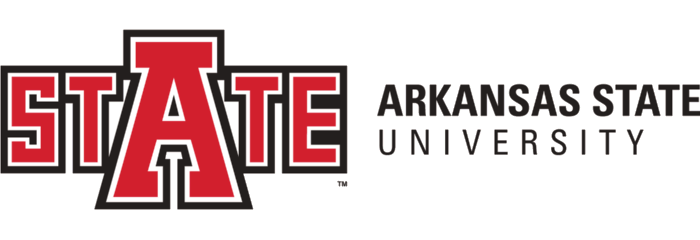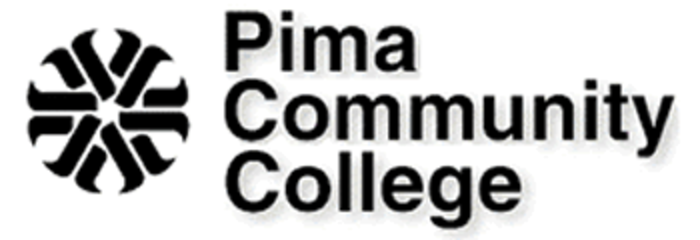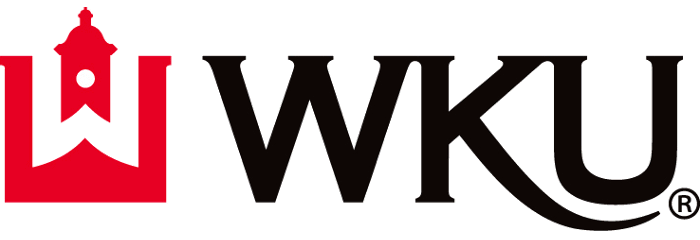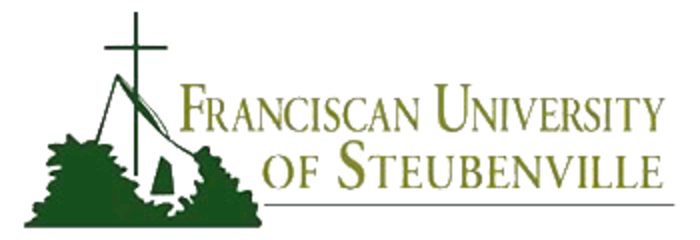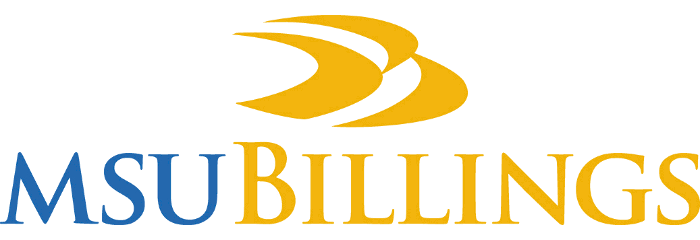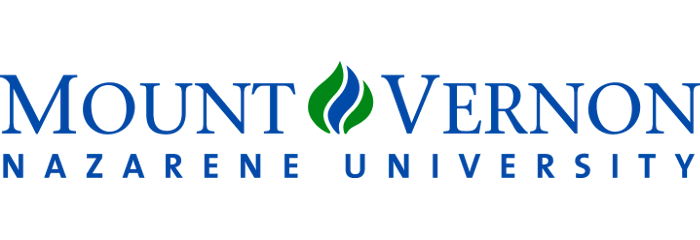2025 Best Online Colleges for Students with Disabilities
To create this list of the best online colleges for students with disabilities, we focused on schools that demonstrate strong support and accessibility: All the colleges on our list are accredited, have at least 200 online students, and offer six or more fully online degrees. We only included schools where at least 8% of students have a reported disability, and we gave priority to those that mention training in Universal Design for Learning (UDL) or follow web accessibility standards like WCAG.
Below are some insights from our roundup of disability-friendly online colleges:
- Our #1 pick for students with disabilities seeking an online education is Walsh University, with 25% of students who have disclosed a disability.
- Saint Joseph's College of Maine boasts median graduate earnings of $82,033.
- The University of Florida excels with a graduation rate of 90%.
List of Online Colleges for Students With Learning Disabilities
2025 Best Online Colleges for Students with Disabilities
- Disability Percent: 25%
- UDL Training: No
- WCAG Compliant: Yes
- Online Enrollment: 570
- Location: North Canton (OH)
Why we like them: Walsh provides a highly supportive environment for students with disabilities, which is why it's #1 on our list. Through its Accessibility Services office, students can access extended test time, distraction-reduced testing spaces, adaptive housing, and other disability-related supports, all coordinated through a clear intake and documentation process. The school also helps students in online consortium courses coordinate accommodations with partner institutions. It also has a dedicated ADA committee, proactive dispute resolution options, and a strong commitment to legal compliance. We also want to mention its 94% recommendation rate from students as well as high earnings of $58,122 among graduates here.
"Walsh University provided an individualized experience combined with a high-quality education... Catholic values, primarily that of serving the community, are instilled in students."
Emily, Graduated 2013
Key Metrics:
- Acceptance Rate: 79%
- Avg. Graduation Rate: 58%
- Retention Rate: 76%
- Recommend Rate: 94%
- Financial Aid Recipients: 100%
- Avg. Aid Package: $26,172
- Repayment Rate: 94%
- School Type: Nonprofit (Private)
- Disability Percent: 18%
- UDL Training: No
- WCAG Compliant: Yes
- Online Enrollment: 891
- Location: Beverly (MA)
Why we like them: EC offers a standout support system for students with disabilities through its Center for Accessibility Services, providing individualized accommodations at both the undergraduate and graduate levels. The school hosts a student-led DREAM chapter focused on community-building, mental health, and disability advocacy, which even launched a dedicated Zen Room for relaxation and connection. EC also prioritizes digital accessibility, meeting WCAG 2.0 Level AA standards, and offers formal ADA/504 grievance procedures. We also want to note the high median salary outcome of $61,636 for graduates here, just a few years after earning a degree.
"Communication with the administration is excellent; the dean is very involved and responsive. Facilities are modern with advanced technology."
Kate Colley, Graduated 2015
Key Metrics:
- Acceptance Rate: 81%
- Avg. Graduation Rate: 78%
- Retention Rate: 85%
- Recommend Rate: 90%
- Financial Aid Recipients: 98%
- Avg. Aid Package: $16,533
- Repayment Rate: 97%
- School Type: Nonprofit (Private)
- Disability Percent: 13%
- UDL Training: No
- WCAG Compliant: Yes
- Online Enrollment: 8,791
- Location: Gainesville (FL)
Why we like them: UF provides one of the most comprehensive disability support ecosystems in the country, centered around its Disability Resource Center (DRC), which serves over 7,000 students. The DRC offers not only academic accommodations but also individualized strategy sessions, assistive tech, and advocacy education to build self-advocacy skills. UF also hosts dedicated student organizations, an online career center for students with disabilities, and multiple fully online graduate programs and certificates in special education and disability studies. We also want to note UF's striking 91% recommendation rate from alums based on over 300 surveys we've collected
"My undergraduate college has given me more than I could have ever imagined. The community is so welcoming...the diversity that this campus has...I feel prepared for graduate school, and think that I have the tools to do well."
Amber Henning, Graduated 2019
Key Metrics:
- Acceptance Rate: 42%
- Avg. Graduation Rate: 90%
- Retention Rate: 97%
- Recommend Rate: 91%
- Financial Aid Recipients: 94%
- Avg. Aid Package: $10,555
- Repayment Rate: 96%
- School Type: Nonprofit (Public)
- Disability Percent: 12%
- UDL Training: Yes
- WCAG Compliant: Yes
- Online Enrollment: 1,932
- Location: Portland (ME)
Why we like them: USM embraces disability as an important dimension of diversity and fosters a campus culture rooted in universal accessibility. Its Disability Services Center supports students through a streamlined platform called Accommodate, which allows users to request academic, housing, dining, and emotional support animal accommodations. USM also provides an in-depth guide to help students and families understand the shift from high school to college support models, emphasizing independence. With strong ties to statewide disability resources and organizations, USM connects students with tools for both academic success and long-term community inclusion.
"The University does a wonderful job of working with qualified students to help them in the direction they want to go. There is funding set aside for students who need a little help with getting started and enrolled in classes... All the professors are helpful and want to give you the most out of your degree. A robust support system and esteemed faculty make this program commendable."
Bryan Levangie, Graduated 2019
Key Metrics:
- Acceptance Rate: 83%
- Avg. Graduation Rate: 42%
- Retention Rate: 67%
- Recommend Rate: 86%
- Financial Aid Recipients: 98%
- Avg. Aid Package: $9,668
- Repayment Rate: 93%
- School Type: Nonprofit (Public)
- Disability Percent: 12%
- UDL Training: Yes
- WCAG Compliant: No
- Online Enrollment: 782
- Location: Standish (ME)
Why we like them: SJCME is notable for its strong salary outcomes for students (the best on our list), with median salary for graduates at $82,033. Plus, we love how SJCME offers a personalized approach to disability support. Students work one-on-one with the Manager of Student Accessibility Services to develop tailored accommodations, including assistive technology supports. The college provides tools like ReadSpeaker in its Brightspace platform and digital textbook formatting, enhancing access for all learners. Uniquely, SJCME is also exploring an integrated studies program for students with intellectual disabilities, focused on self-determination, social development, and employment readiness.
"The online experience is great with being able to start your classes on the first day of any month and having an open curriculum. Plus, my advisor was a great help with it all."
Robyn Leighton, Graduated 2016
Key Metrics:
- Acceptance Rate: 80%
- Avg. Graduation Rate: 70%
- Retention Rate: 77%
- Recommend Rate: 33%
- Financial Aid Recipients: 100%
- Avg. Aid Package: $26,987
- Repayment Rate: 94%
- School Type: Nonprofit (Private)
- Disability Percent: 11%
- UDL Training: No
- WCAG Compliant: Yes
- Online Enrollment: 2,834
- Location: Saint Paul (MN)
Why we like them: CSP offers a holistic approach to accessibility, blending academic, wellness, and spiritual support for students with disabilities. Student Accessibility Services provides accommodations for both long-term and short-term conditions, including help with assistive technology, self-advocacy, and working directly with faculty. CSP stands out for integrating mental health and telehealth counseling via META Health, along with in-person and spiritual counseling options. With flexible support for traditional and online learners, and a strong emphasis on wellness and dignity, CSP creates an inclusive environment rooted in compassion. (It also has high median earnings among all graduates at $65,296!)
"The intimate class sizes foster connections with classmates and professors, enhancing the educational experience beyond what larger institutions might offer. This environment has contributed significantly to my professional growth."
Madeline Swain, Graduated 2020
Key Metrics:
- Acceptance Rate: 55%
- Avg. Graduation Rate: 51%
- Retention Rate: 61%
- Recommend Rate: 73%
- Financial Aid Recipients: 100%
- Avg. Aid Package: $16,487
- Repayment Rate: 94%
- School Type: Nonprofit (Private)
- Disability Percent: 11%
- UDL Training: No
- WCAG Compliant: Yes
- Online Enrollment: 1,944
- Location: Murray (KY)
Why we like them: MSU boasts a perfect 100% recommendation rate among its students, almost 2,000 of which are 100% online students. MSU offers a deeply integrated support system for students with disabilities through its Office of Student Disability Services. MSU goes beyond compliance with initiatives like Project Pass, an enhanced support program for first-year students with disabilities that includes structured services and mentorship. The university supports a wide range of conditions — including cognitive, mental health, sensory, and mobility disabilities — and uses tools like GLEAN and Read&Write to aid learning.
"Murray State University is an outstanding university whose main goal is providing 'education at its finest'. The warm and welcoming community, along with low teacher-to-student ratios, ensures personalized attention and rich learning experiences. We particularly admire the dedication of the professors and their commitment to your success, which is evident in every interaction and activity."
Kaylee Oakley, Graduated 2019
Key Metrics:
- Acceptance Rate: 87%
- Avg. Graduation Rate: 62%
- Retention Rate: 77%
- Recommend Rate: 100%
- Financial Aid Recipients: 100%
- Avg. Aid Package: $11,560
- Repayment Rate: 90%
- School Type: Nonprofit (Public)
- Disability Percent: 10%
- UDL Training: No
- WCAG Compliant: Yes
- Online Enrollment: 4,572
- Location: Lubbock (TX)
Why we like them: Ranked 8th among the best disability-friendly online schools, TTU stands out for offering one of the most comprehensive disability support systems in Texas, serving over 2,000 students through its Student Disability Services office. In addition to standard accommodations, TTU provides the TECHniques Center — a unique, fee-based program offering one-on-one tutoring and academic coaching for students with learning disabilities and ADHD. TTU’s CASE program also offers individualized, wraparound support for students with autism, helping them transition to college and find competitive employment after graduation. The school also has a 91% recommendation rate.
"I feel that I will benefit greatly from attending the program. The program will provide me with the tools and knowledge needed to advance my career. I've already learned so much in just a few classes and I know I will have an advantage over the competition in the workforce."
Jonathan Rangel, Graduated 2016
Key Metrics:
- Acceptance Rate: 69%
- Avg. Graduation Rate: 64%
- Retention Rate: 86%
- Recommend Rate: 91%
- Financial Aid Recipients: 88%
- Avg. Aid Package: $9,359
- Repayment Rate: 92%
- School Type: Nonprofit (Public)
- Disability Percent: 10%
- UDL Training: Yes
- WCAG Compliant: Yes
- Online Enrollment: 2,747
- Location: Orono (ME)
Why we like them: UMaine's online programs rank highly with a significant online enrollment of 2,747 students, placing the school in the top 27% of universities with substantial online education offerings. The university uses the Accommodate platform for streamlined access to services like extended test time, note-taking assistance, and accessible formats. UMaine also hosts the Center for Community Inclusion and Disability Studies, a federally designated hub for interdisciplinary education, training, and disability research. With a rising number of students seeking accommodations, especially for mental health and chronic conditions.
"Due to the small size it creates a supportive environment and you get to know your classmates and professors well."
Amanda Methot, Graduated 2017
Key Metrics:
- Acceptance Rate: 92%
- Avg. Graduation Rate: 55%
- Retention Rate: 75%
- Recommend Rate: 94%
- Financial Aid Recipients: 98%
- Avg. Aid Package: $12,652
- Repayment Rate: 94%
- School Type: Nonprofit (Public)
- Disability Percent: 10%
- UDL Training: No
- WCAG Compliant: Yes
- Online Enrollment: 1,520
- Location: La Grande (OR)
Why we like them: EOU's Disability Services Office provides case-by-case accommodations for physical, psychological, medical, and learning-related needs. The DSO works collaboratively with students and faculty to ensure accessible learning environments and offers services like testing accommodations, consultations, and personalized support plans. EOU is also deeply committed to digital accessibility, integrating WCAG 2.0 AA standards into its online platforms and providing ongoing accessibility training for staff.
"My experience as an online student has been truly amazing...instructors have been helpful and encouraging...The Canvas dashboard is easy to use and navigate...staff in the admissions, registers office, tech support, professor get an A+++. EOU is very affordable, I plan on getting my Masters as well."
Jason DeMartile, Graduated 2018
Key Metrics:
- Acceptance Rate: 98%
- Avg. Graduation Rate: 38%
- Retention Rate: 68%
- Recommend Rate: 90%
- Financial Aid Recipients: 100%
- Avg. Aid Package: $7,718
- Repayment Rate: 92%
- School Type: Nonprofit (Public)
- Disability Percent: 10%
- UDL Training: No
- WCAG Compliant: Yes
- Online Enrollment: 1,513
- Location: Abilene (TX)
Why we like them: Abilene ranks 11th in providing disability-friendly education. Alpha Scholars at Abilene Christian University is the dedicated office supporting students with disabilities, ensuring equal access. The program facilitates a wide range of accommodations, from extended test time and note-taking support to assistive technologies and meal plan adjustments. Each accommodation is tailored to individual needs, based on proper documentation. Alpha Scholars empowers students to advocate for themselves while following outlined procedures to receive services.
"ACU has been a great university that has done everything they can to prepare myself for a long career."
Brandon Kahla, Graduated 2014
Key Metrics:
- Acceptance Rate: 58%
- Avg. Graduation Rate: 60%
- Retention Rate: 79%
- Recommend Rate: 94%
- Financial Aid Recipients: 100%
- Avg. Aid Package: $26,280
- Repayment Rate: 93%
- School Type: Nonprofit (Private)
- Disability Percent: 9%
- UDL Training: Yes
- WCAG Compliant: Yes
- Online Enrollment: 575
- Location: Marquette (MI)
Why we like them: At NMU, students with a range of disabilities can request academic accommodations such as extended test time, alternate formats, assistive technology, and note-taking assistance through the Disability Services Portal. The university emphasizes individualized support, proactive inclusion, and holistic well-being. Additional services include counseling, physical and mental health resources, accessible recreation, and a vibrant campus community — all grounded in a strong commitment to the Americans with Disabilities Act (ADA) and Section 504 of the Rehabilitation Act.
"Northern Michigan University is a great school. The professors seem to truly care about their students and want to help them succeed. I learned a lot, especially in higher level courses."
Rebecca Lynn, Graduated 2016
Key Metrics:
- Acceptance Rate: 74%
- Avg. Graduation Rate: 51%
- Retention Rate: 73%
- Recommend Rate: 89%
- Financial Aid Recipients: 100%
- Avg. Aid Package: $9,385
- Repayment Rate: 88%
- School Type: Nonprofit (Public)
- Disability Percent: 9%
- UDL Training: Yes
- WCAG Compliant: No
- Online Enrollment: 519
- Location: Austin (TX)
Why we like them: Concordia Texas offers accommodations such as note-taking assistance, digital textbooks, assistive technology, and testing support. Students must self-identify and register with appropriate documentation to receive services. The university also upholds policies for course substitutions when a disability substantially limits a student’s ability to complete a required course, reviewed by a dedicated committee. CTX emphasizes student self-advocacy, transition planning from high school, and access to additional resources, including scholarships, emotional support animal policies, and assistive technologies integrated into Blackboard Ultra.
"I really enjoy Concordia's atmosphere and the faculty. It is a relaxed but intelligent environment. The students it attracts are extremely thoughtful and kind compared to other universities...they actively check in with new students to see if you are alright and offer help, guidance, and even recommendations on where to meet other students after class."
Jeff Semler, Graduated 2016
Key Metrics:
- Acceptance Rate: 89%
- Avg. Graduation Rate: 39%
- Retention Rate: 68%
- Recommend Rate: 80%
- Financial Aid Recipients: 98%
- Avg. Aid Package: $24,594
- Repayment Rate: 93%
- School Type: Nonprofit (Private)
- Disability Percent: 8%
- UDL Training: Yes
- WCAG Compliant: Yes
- Online Enrollment: 8,674
- Location: Norfolk (VA)
Why we like them: ODU excels in online education, with a solid enrollment of 8,674 distance learners currently enrolled. ODU Global offers a range of online course formats, including live web classes, self-driven courses, and blended courses to cater to different learner needs. In terms of disability accommodations, students must submit documentation, meet with OEA staff, and request accommodation letters each semester to receive support. Accommodations may include extended test time, distraction-reduced testing environments, use of assistive technologies, and housing adjustments. We also think that the schools 87% recommendation rate is telling, as this is based on over 100 surveys we've collected from this school.
"The faculty is knowledgeable and supportive. Dr. Chapman, the program director, is accessible and willing to help students in need. The program helped me find scholarships to fund my education."
Marisza J, Graduated 2018
Key Metrics:
- Acceptance Rate: 86%
- Avg. Graduation Rate: 47%
- Retention Rate: 74%
- Recommend Rate: 87%
- Financial Aid Recipients: 92%
- Avg. Aid Package: $9,058
- Repayment Rate: 93%
- School Type: Nonprofit (Public)
- Disability Percent: 8%
- UDL Training: No
- WCAG Compliant: Yes
- Online Enrollment: 5,823
- Location: Jonesboro (AR)
Why we like them: A-State offers support for students with disabilities through Access & Accommodation Services. This services range from academic accommodations, assistive technology, captioning, alternative testing, to support for emotional support/assistive animals. Importantly, students must self-advocate and initiate each step in the process. Faculty and staff are also offered training and resources to ensure accessibility. A-State emphasizes confidentiality and equal access when it comes to fostering an inclusive academic environment. It also boasts a 92% recommendation rate from its students and alums.
"I could not have enjoyed my time at Arkansas State University more. The faculty was incredibly supportive... I took my courses online and felt that the ease of completing my master’s on my own time made it a wonderful experience...If I ever had any questions, both the professors and academic assistants were always reachable by email and responded quickly."
Kelsey Lynch, Graduated 2019
Key Metrics:
- Acceptance Rate: 66%
- Avg. Graduation Rate: 52%
- Retention Rate: 78%
- Recommend Rate: 92%
- Financial Aid Recipients: 100%
- Avg. Aid Package: $11,225
- Repayment Rate: N/A
- School Type: Nonprofit (Public)
- Disability Percent: 8%
- UDL Training: No
- WCAG Compliant: Yes
- Online Enrollment: 4,610
- Location: Tucson (AZ)
Why we like them: Ranked 16th for its online programs specifically designed for students with disabilities, Pima is a large online school with over 4,600 students enrolled remotely. Students must submit an ADR application and complete an intake to receive accommodations like extended testing time, accessible materials, assistive technology, and classroom support. Pima also offers a Personalized Academic Coaching Experience (PACE) to help eligible ADR-registered students build academic and life skills.
Key Metrics:
- Acceptance Rate: N/A
- Avg. Graduation Rate: 16%
- Retention Rate: 68%
- Recommend Rate: 75%
- Financial Aid Recipients: 68%
- Avg. Aid Package: $5,174
- Repayment Rate: N/A
- School Type: Nonprofit (Public)
- Disability Percent: 8%
- UDL Training: Yes
- WCAG Compliant: Yes
- Online Enrollment: 4,088
- Location: Columbia (MO)
Why we like them: At Mizzou, the Disability Center is a champion for access, inclusion, and student success. From exam accommodations and note-taking assistance to captioning and reduced course loads, the center offers personalized support to help students fully engage with their academic journey. Getting started is simple — students apply through the MyAccess portal and partner with an access advisor to create a plan tailored to their needs. Beyond accommodations, the center fosters connection through peer mentoring and programs that build a strong, inclusive campus community. Plus, 99% of people who go here recommend Mizzou, and earnings are high, with a median salary of $63,134.
"University of Missouri provided excellent resources as a Research I Institution, enhancing research skills and offering numerous organizations for involvement that prepares you for internships and full-time employment."
Jayla Head, Graduated 2018
Key Metrics:
- Acceptance Rate: 78%
- Avg. Graduation Rate: 75%
- Retention Rate: 89%
- Recommend Rate: 99%
- Financial Aid Recipients: 91%
- Avg. Aid Package: $11,545
- Repayment Rate: 95%
- School Type: Nonprofit (Public)
- Disability Percent: 8%
- UDL Training: Yes
- WCAG Compliant: Yes
- Online Enrollment: 3,162
- Location: Bowling Green (KY)
Why we like them: SSS-D at WKU is a TRIO program designed to empower students with disabilities. Housed within the Student Accessibility Resource Center, this program helps students build confidence, navigate college life, and stay on track toward graduation. Participants benefit from tailored resources and guidance that promote both personal and professional growth. We think it's valuable that 99% of students here receive some form of financial aid, as this always helps make higher education more accessible. We also want to spotlight the school's 95% recommendation rate.
"This program was excellent in teaching you what you need to know before getting out in the real world. They taught you how to slow down and due self-care, so you would not get burnt out. This school taught me to be myself and that it is okay to have a mental break down...But that you should get back up and keep trying."
Kelley Sabino, Graduated 2018
Key Metrics:
- Acceptance Rate: 95%
- Avg. Graduation Rate: 50%
- Retention Rate: 77%
- Recommend Rate: 95%
- Financial Aid Recipients: 99%
- Avg. Aid Package: $10,260
- Repayment Rate: 86%
- School Type: Nonprofit (Public)
- Disability Percent: 8%
- UDL Training: Yes
- WCAG Compliant: Yes
- Online Enrollment: 3,031
- Location: Baton Rouge (LA)
Why we like them: Whether you're navigating long-term disabilities, temporary conditions, or specific academic needs, LSU offers tailored support and accommodations that level the playing field. Students can access services like note-taking support, alternative testing environments, assistive technology, interpreting and captioning services, and more. From housing and dining accommodations to exam support and advocacy, LSU's holistic approach ensures that accessibility is built into every corner of the student experience.
"Louisiana State University is a great institution... the anxiety about navigating my way through academia and the support I receive is empowering me..."
Jordyn Warren, Graduated 2019
Key Metrics:
- Acceptance Rate: 74%
- Avg. Graduation Rate: 70%
- Retention Rate: 84%
- Recommend Rate: 91%
- Financial Aid Recipients: 98%
- Avg. Aid Package: $12,374
- Repayment Rate: 96%
- School Type: Nonprofit (Public)
- Disability Percent: 8%
- UDL Training: No
- WCAG Compliant: Yes
- Online Enrollment: 1,027
- Location: Steubenville (OH)
Why we like them: At FUS, students can participate in The Center for Success, which frames its support services within the university’s Catholic mission, highlighting spiritual growth alongside academic support. This is rare among disability services offices and may appeal to students seeking a faith-centered approach. FUS offers a structured, year-long transition program specifically for first-year students, combining academic, social, and spiritual support. This kind of holistic, seminar-based mentoring program can be especially helpful for students with disabilities who are becoming acclimated. This includes one-on-one coaching and biweekly check-ins.
"This school is unlike any other. The community is welcoming, warm and calls you on to be the best person you can be. It encourages the development of mind, body, and soul through truth, beauty, and goodness. The teacher to student ratio is very low... I do not regret coming here, it has given me a strong foundation stone to which I can build the rest of my life thanks to many great role models and mentors."
Dowling, Graduated 2017
Key Metrics:
- Acceptance Rate: 83%
- Avg. Graduation Rate: 76%
- Retention Rate: 86%
- Recommend Rate: 100%
- Financial Aid Recipients: 99%
- Avg. Aid Package: $16,779
- Repayment Rate: 98%
- School Type: Nonprofit (Private)
- Disability Percent: 8%
- UDL Training: Yes
- WCAG Compliant: Yes
- Online Enrollment: 986
- Location: Billings (MT)
Why we like them: MSUB’s Disability Support Services emphasizes self-advocacy, civil rights, and individualized solutions through the Interactional Model of Disability. The DSS team uses a mix of practicality and encouragement, blending direct accommodations (like notetakers, scribes, interpreters, and assistive tech) with motivational messaging and humor to create a welcoming, confidence-building environment. While most schools operate implicitly within a mix of medical and social models, MSUB explicitly names and rejects the Medical Model of Disability, embracing an Interactional Model. That framing matters — it shifts the focus from “fixing the student” to “removing barriers.”
"Montana State University of Billings is a college full of many opportunities... Professors are supportive..."
Sarah Khan, Graduated 2018
Key Metrics:
- Acceptance Rate: N/A
- Avg. Graduation Rate: 26%
- Retention Rate: 60%
- Recommend Rate: 86%
- Financial Aid Recipients: 98%
- Avg. Aid Package: $5,394
- Repayment Rate: 89%
- School Type: Nonprofit (Public)
- Disability Percent: 8%
- UDL Training: Yes
- WCAG Compliant: No
- Online Enrollment: 676
- Location: Mount Vernon (OH)
Why we like them: MVNU’s blend of personalized support, Christian mission, and integrated programming makes its services especially student-centered and spiritually grounded. At MVNU, students work one-on-one with the coordinator to create personalized accommodation plans. Separate from this, MVNU’s two-year residential IGNITE program stands out by offering students with intellectual disabilities a fully integrated college experience, complete with inclusive coursework, spiritual development, internships, and housing. This rare program reflects MVNU’s broader commitment to holistic growth, inclusion, and Christ-centered learning.
"I really like this grad program because it is very intimate as there aren't too many students per cohort...I also like how supportive the professors and staff are. They are all wonderful people and I have had a great experience so far!"
Jennifer Twigg, Graduated 2017
Key Metrics:
- Acceptance Rate: 77%
- Avg. Graduation Rate: 69%
- Retention Rate: 70%
- Recommend Rate: 50%
- Financial Aid Recipients: 100%
- Avg. Aid Package: $23,202
- Repayment Rate: 93%
- School Type: Nonprofit (Private)
Finding the Right Fit: Online Colleges for Students With Disabilities
For many students with disabilities, the traditional college experience can present physical, sensory, or learning-related challenges that make academic success harder to achieve. But online college degrees are helping to change that narrative, offering flexible, accessible pathways to higher education. For students with learning disabilities in particular, online learning can provide a more personalized, manageable, and distraction-reduced environment where they can succeed on their own terms.
Our list above of online colleges for students with learning disabilities highlights key factors that can help support a successful educational experience. Below, we provide a more detailed explanation of what all of these factors mean and why they're important to consider.
What does “Disability Percent” mean?
This number shows the percentage of students at each school who have officially disclosed a disability to receive accommodations. It doesn’t tell the whole story, but a higher percentage can suggest that the school has more experience supporting students with disabilities — and may offer a more inclusive environment.
We collected our table data from the National Center for Education Statistics (NCES). If NCES didn’t have info for a school, we reached out directly to get it. For the most up-to-date details, it’s always a good idea to contact the school directly.
WCAG Compliance
The WCAG Compliant column indicates whether a school’s digital platform follows the Web Content Accessibility Guidelines — an international standard for ensuring that websites and learning materials are usable for individuals with visual, auditory, motor, or cognitive disabilities. If a school is WCAG-compliant, it means its online courses are more likely to include captions, screen-reader compatibility, and intuitive navigation.
UDL Training
Another critical metric is UDL Training, short for Universal Design for Learning. Schools that provide UDL training are equipping faculty with tools to proactively meet diverse learning needs. UDL encourages flexible ways of presenting material, engaging students, and assessing learning. This approach especially benefits students with learning differences, such as dyslexia or ADHD.
Online Enrollment
Online Enrollment refers to the number of students enrolled entirely online, not just taking a few distance courses. This matters because schools with larger online student populations often have more experience delivering virtual education. That usually means better course design, stronger tech support, and more accessible resources.
For students with disabilities, that can make a big difference. Whether you’re navigating physical accessibility needs, managing chronic health conditions, or looking for flexible scheduling due to neurodivergence or fatigue, a well-established online program can offer more stability and support. Schools with thousands of online students are more likely to have dedicated staff, adaptive technologies, and processes already in place to help remote learners succeed.
When comparing schools, it helps to think of each metric as a window into how inclusive and well-prepared a college might be for students with disabilities. Some schools stand out in specific areas, and understanding what those strengths mean in practice can make your college search more focused and empowering.
Take Walsh University, where 25% of students have officially disclosed a disability — the highest percentage in the group. Endicott College isn’t far behind at 18%. These high numbers suggest not only that students feel comfortable disclosing and seeking accommodations, but also that these institutions likely have strong disability services in place.
In contrast, most schools on the list fall between 8-12%, which is still a healthy range that offers a good baseline for peer support and staff familiarity with accessibility needs.
A higher disability representation doesn’t guarantee better services, but it often points to a culture that’s more experienced, responsive, and inclusive.
Just as important is whether faculty are trained in UDL, an approach that builds flexibility into course design from the beginning. Only 11 schools on the list report “Yes” for UDL training. At these schools, instructors are more likely to offer multiple ways to access course content and show learning, which can ease pressure on students with ADHD, dyslexia, or processing challenges. UDL reduces the need for students to ask for exceptions or special accommodations later because many of those needs are already built into the course experience.
Meanwhile, most of the schools listed are WCAG compliant, which is promising. That means students can expect screen reader-friendly materials, captions on videos, and user-friendly navigation, all critical features for blind or low-vision learners, as well as those who benefit from a more organized digital space. However, a few schools like Saint Joseph’s College of Maine and Concordia University – Texas are not WCAG compliant, which could present digital barriers depending on the assistive tech a student uses.
Looking at these metrics side by side can reveal not just where a school stands, but how ready it is to support you. In the end, no single metric tells the whole story, but looking at them together can reveal which schools are truly prioritizing accessibility in online learning.
Why Online College Can Be a Game-Changer
For students with disabilities, online education can offer more than convenience — it can open doors to greater accessibility, flexibility, and comfort. But not all online programs are created equal. A useful indicator of how well a school supports its remote learners is online enrollment — specifically, how many students are studying fully online.
Schools like the University of Florida and Old Dominion University, each with over 8,600 fully online students, have had time to refine their virtual learning systems. That often means smoother technology, better digital accessibility, more responsive online advisors, and instructors who are experienced in teaching remote learners.
Mid-sized programs like Texas Tech University or Arkansas State University also show strong online engagement, which typically translates to a more stable and user-friendly online experience.
This matters because students with disabilities often benefit from learning environments that are more adaptable to individual needs. Whether you’re managing a mobility impairment, a chronic health condition, or a learning disability like ADHD or dyslexia, online programs can reduce physical demands and give you more control over your learning environment.
Schools with large online populations are more likely to have dedicated infrastructure, from captioned lectures to flexible deadlines, that supports your success.
If you're interested in learning how colleges support students with disabilities — from accessibility services to legal rights and advocacy — check out our guide to Navigating College with a Disability.
Expert Insight: Navigating Online Learning with Accessibility in Mind
From what I’ve seen, the experience of attending an online college as a student with a disability varies widely based on the school’s commitment to accessibility.
Some institutions have strong support systems in place, offering accommodations like closed captioning, screen reader-compatible platforms, extended test times, and dedicated disability services teams. Others, unfortunately, fall short, requiring students to self-advocate more than they should have to.
One of the biggest challenges students and parents face is ensuring that the school’s learning management system (LMS) is fully accessible. Not all platforms are designed with universal access in mind, so it’s important to ask whether the LMS supports screen readers, voice-to-text tools, and alternative navigation options. Additionally, real-time communication tools like video conferencing software need to provide closed captions and transcript options.
The application and enrollment process can also be a hurdle. Some schools are proactive in assisting students with disabilities, while others require extensive paperwork and back-and-forth to secure accommodations.
EXPERT TIP
I always advise parents and students to have detailed discussions with the disability services office before enrolling. Getting clarity on available resources—such as assistive technology, note-taking support, or alternative testing formats—can prevent frustration down the road.
The response from professors and staff is another key factor. Some are well-trained in accessibility and eager to accommodate students, while others may lack awareness. Encouraging open communication early in the semester can make a significant difference. I’ve seen students succeed when they take the initiative to educate their professors about their needs while also leveraging formal accommodations.
For prospective students with disabilities considering online college, my advice is to do thorough research before committing. Look beyond the marketing materials—ask about real accessibility measures, speak to current students, and read reviews about how well the school actually follows through on its promises. It’s also valuable to explore external support networks, such as online student communities or advocacy groups, which can provide guidance and encouragement.
Looking back, many parents I’ve worked with say they wish they had asked more detailed questions about how accessibility is handled in day-to-day coursework, not just at the institutional level. A school may have general policies in place, but the actual implementation depends on individual instructors and departments. Ensuring that accessibility is woven into every aspect of the learning experience—not just offered as an afterthought—is critical for a truly inclusive education.



